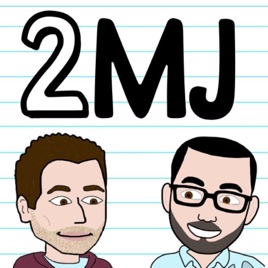
Advertise on podcast: Two Messianic Jews
Rating
4.4 from
Country
This podcast has
40 episodes
Language
Publisher
Explicit
No
Date created
2020/06/07
Average duration
32 min.
Release period
60 days
Description
Two Messianic Jewish graduate students think deeply about Messianic Jewish history and theology. We also engage with questions asked by other Jews, Hebrew Roots/One Law groups, and Christians. These questions include: Can you be Jewish and believe in Jesus? Are Gentiles obligated to keep kosher, Shabbat, and the feasts? Didn't Christianity replace Judaism? And many more! We hope to be thoughtful conversation partners with you as we explore these issues. Subscribe if you would like to join us!
Social media
Check Two Messianic Jews social media presence
Podcast episodes
Check latest episodes from Two Messianic Jews podcast
Is the New Testament Antisemitic? (Inspiring Philosophy interview)
2023/10/26
Michael Jones, from one of the largest Christian apologetics YouTube channels, Inspiring Philosophy, interviewed us on the topic: "Is the New Testament Antisemitic?" This message is particularly timely, given the increasing prevalence of Jew-hatred worldwide. Sadly, Christian antisemitism is also a reality, and in this interview, we address the challenging passages that antisemites cite to argue that the New Testament promotes Jew-hatred. We cover Matthew 27:24–26; John 8:44; Revelation 2:9; 3:9; Matthew 23:33; 1 Thessalonians 2:14–16; and Philippians 3:2.
Make sure to check out Inspiring Philosophy! It is an excellent channel that we have been watching for years. To watch the interview on YouTube, click here.
______________________
You can also watch our YouTube channel.
Follow us on Social Media:
Facebook
Instagram
If you are looking for a way to support us and gain early access to our content, you can become a monthly supporter on Subscribestar
We also have PayPal
______________________
Music: https://www.bensound.com
more
Was Jesus Like Jonah? A Yom Kippur D'rash
2023/09/24
What similarities and differences can we notice when comparing the story of Jonah with Jesus calming the storm in Matthew 8? How does making this comparison show that Jesus was recognized as the Messiah? Join us for this Yom Kippur D'rash!
Jonah 1:1-6
(1) And the word of the Lord came to Jonah, the son of Amittai, saying, (2) “Get up and go[1] to the great city of Ninevah and cry out against it, for their wickedness has come up before Me.” (3) But Jonah got up to flee to Tarshish from the presence of the Lord and he went down to Joppa and found a ship going to Tarshish and he paid his fare and went down into it to go with them to Tarshish, [away][2] from the presence of the Lord. (4) And the Lord hurled a great wind on the sea and there was a great storm on the sea, and the ship was at risk[3] to break into pieces. (5) And the sailors were afraid, and each man cried out to his god and they threw the cargo that was in the ship into the sea to lighten the load from upon them[4] and Jonah went down to the innermost parts[5] of the ship and he laid down and fell into a deep sleep. (6) And the captain came to him and said to him, “What are you doing sleeping? Get up! Call on your god! Perhaps your god will give a thought to us so that we do not perish.”
1 NIV and NRSV translate קוּם לֵךְ as “Go at once” and this could be translated as ‘Arise’ (BDB, 877). But I chose ‘Get up and go’ to contrast the prophetic call more clearly with the ironic remarks of Jonah ‘going down’ to Tarshish (1:3), into the ship (1:3, 5) in his disobedience.
2 I chose to insert “away” to draw out the movement of the ship going the opposite direction the Lord called Jonah to go.
3 BDB recommends translating הָאֳנִיָה חִשְּׁבָה לְּׁהִשָבֵֵֽר as “the ship was about to (minded to) be broken up” (363). Considering חִשְּׁבָה is in the piel, and thus intensive, I said “at risk” because it communicates the high stakes of the moment more effectively. NET notes that this would be translated literally as “the ship considered breaking up” but considering it is an idiom, I translated it to communicate its meaning, rather than word for word.
4 NIV translates לְּׁהָקֵל מֵֵֽעֲלֵיהֶם as “to lighten the ship.” I wanted to bring out more fully the sense of מֵֵֽעֲלֵיהֶם so I followed BDB which recommends, “make light from upon one” (886).
5 NIV translates יָרַד אֶל־יַרְּׁכְּׁתֵי הַסְּׁפִינָה as “had gone below deck” and NRSV translates it as “had gone into the hold of the ship.” I chose the more literal “went down to the innermost parts” because, once again, it emphasizes the movement downwards/away from Jonah’s call to “get up and go” (1:2). I think reminding the reader of this theme is more crucial to the message of Jonah than accurately describing the ship.
______________________
You can also watch on our YouTube channel
Follow us on Social Media:
Facebook
Instagram
If you are looking for a way to support us and gain early access to our content, you can become a monthly supporter on Subscribestar
We also have PayPal
______________________
Music: https://www.bensound.com
more
Paul's Name NEVER Changed
2023/09/24
Have you ever heard the claim that Saul's name was changed to Paul on the road to Damascus? Do Christians tell you that this name changed symbolized not only a dramatic personal transformation but also Paul's turn away from Judaism in favor of Christianity? I read through Acts 9 and Acts 13 to show that Paul's name was never changed from Saul and give an alternative explanation for why Luke shifts to use "Paul" after Acts 13:9. Thanks for joining and share it with your Christian friends!
Christian's who debunk this myth:
Got Questions
Gary Manning Jr.
Dr. Greg Lanier
______________________
You can also watch on our YouTube channel
Follow us on Social Media:
Facebook
Instagram
If you are looking for a way to support us and gain early access to our content, you can become a monthly supporter on Subscribestar
We also have PayPal
______________________
Music: https://www.bensound.com
more
Jesus Did NOT Declare All Foods Clean | Messiah Conference 2023
2023/07/21
At the Messianic Jewish Alliance of America (MJAA) Messiah Conference 2023, Jonathan gave a presentation addressing the standard interpretation of Mark 7.15–19. He presents three reasons why it is implausible that Jesus abrogated Israel's dietary laws and then offers a reading of the text that makes better sense of Jesus's argument in its Jewish context.
Special thanks to Dr. Logan Williams for sharing his research with us on Mark 7.18–19 for this presentation! Dr. Williams won the 2022 Paul J. Achtemeier Award for New Testament scholarship for this paper and it will be published as an article in the peer-reviewed journal, New Testament Studies.
___________________________
You can also listen on our podcast: https://anchor.fm/two-messianic-jews
Follow us on Social Media:
Facebook
Instagram
If you are looking for a way to support us and gain early access to our content, you can become a monthly supporter here:
We also have: PayPal
___________________________
Works cited:
Daniel Boyarin, “Mark 7:1-23 – Finally,” in Taylor G. Petrey, et al., eds., Re-Making the World: Christianity and Categories – Essays in Honor of Karen L. King (Tübingen: Mohr Siebeck, 2019), 19–34.
David Rudolph, "Jesus and the Food Laws: A Reassessment of Mark 7:19b," Evangelical Quarterly, 74 (2002): 291–311.
Jodi Magness, “What’s the Poop on Ancient Toilets and Toilet Habits?”, Near Eastern Archaeology 75 (2012): 80–87.
Jonathan Klawans, Impurity and Sin in Ancient Judaism (New York: Oxford University Press, 2000).
Logan Williams, "The Stomach Purifies All Foods: Jesus’ Anatomical Argument in Mark 7.18–19." Society of Biblical Literature Annual Meeting. Denver, CO. November 2022.
Matthew Thiessen, Jesus and the Forces of Death: The Gospels' Portrayal of Ritual Impurity Within First-Century Judaism (Grand Rapids: Baker Academic, 2020), 187–195.
Shlomo Naeh, "Jesus, the Pharisees, and the Oral Torah", Te’udah 31 (2021): 229–248.
Yair Furstenberg, “Defilement Penetrating the Body: A New Understanding of Contamination in Mark 7.15,” NTS 54 (2008): 176–200
______________________
Music: https://www.bensound.com
more
Reaching Our People Panel at Messianic Conference 2023
2023/07/14
At the MJAA Messiah Conference, Erik presented on a panel entitled, "Reaching Our People" with David Brickner, Janet Forman, and Chantel Winograd. Erik shared stories of how he has shared the gospel with young people who care about truth and those who don't. He finishes his speech by sharing an important way the Messianic Jewish community can not only reach our people, but keep our people. Enjoy!
______________________
You can watch more on our YouTube channel
Follow us on Social Media:
Facebook
Instagram
If you are looking for a way to support us and gain early access to our content, you can become a monthly supporter on Subscribestar
We also have PayPal
______________________
Music: https://www.bensound.com
more
Did Jesus Declare All Foods Clean? (Mark 7)
2022/10/31
Did Jesus do away with the Jewish dietary laws? Many Christians point to Mark 7.15-19 to say that he did, which is understandable, considering the common translation of Mark 7.19, “Thus he [Jesus] declared all foods clean.” In this video, I present five reasons why it is implausible that Jesus eliminated the Jewish dietary laws and then offer a reading of Mark 7.15-19 that makes better sense of Jesus’s argument in its Jewish context.
Note: Between 25:03 and 25:24, I mention that "pork is not in itself unclean" and that defilement comes through a Jew's disobedience to God's command not to eat pigs. In Leviticus 11 and Deuteronomy 14, pigs are not ontologically unclean; they are not unclean period. They are unclean for Israel, the Jewish people, because God declares them to be such. Jewish disobedience to the food laws, in particular, is a matter of intention. For more on this, along with the references to this perspective in Jewish literature, see Dr. David Rudolph's essay "Paul and the Food Laws: A Reassessment of Romans 14.14, 20"
___________________________
You can also watch on our YouTube channel
Follow us on Social Media:
Facebook
Instagram
If you are looking for a way to support us and gain early access to our content, you can become a monthly supporter on Subscribestar
We also have PayPal
___________________________
Video on Matthew 5:17 (Did Jesus End God’s Covenant with Israel? | Live at MJAA Messiah Conference 2022)
Does Colossians Teach Against Jewish Practices? (Colossians 2.16-17)
___________________________
Works cited: Daniel Boyarin, The Jewish Gospels: The Story of the Jewish Christ (New York: The New Press, 2012), 102-128.
David Rudolph, "Jesus and the Food Laws: A Reassessment of Mark 7:19b," Evangelical Quarterly, 74 (2002): 291-311.
John MacArthur, “The Inside Story on Defilement (Mark 7.14-23),” June 12, 2012.
Jonathan Klawans, Impurity and Sin in Ancient Judaism (New York: Oxford University Press, 2000).
Matthew Thiessen, "Abolishers of the Law in Early Judaism and Matthew 5,17-20," Biblica 93, no. 4 (2012): 543-56.
Matthew Thiessen, Jesus and the Forces of Death: The Gospels' Portrayal of Ritual Impurity Within First-Century Judaism (Grand Rapids: Baker Academic, 2020), 187-195.
Yair Furstenberg, “Defilement Penetrating the Body: A New Understanding of Contamination in Mark 7.15,” NTS 54 (2008): 176-200
______________________
Music: https://www.bensound.com
more
Hebrew Roots Are WRONG About Acts 15
2022/09/19
Are non-Jews expected to become Torah-observant? Is this what the Jerusalem Council of Acts 15 teaches? Many Hebrew Roots and One Law teachers read the Jerusalem Council as a decision to give non-Jewish Jesus-followers a Torah "starter pack" and expect them to become more and more observant as they learn the Torah in the synagogue each Shabbat. Is this the best way to read Acts 15? We don't think so.
You can also watch on our YouTube channel
Follow us on Social Media:
Facebook
Instagram
_________________________________________
If you are looking for a way to support us and gain early access to our content, you can become a monthly supporter on Subscribestar
We also have PayPal
more
Did Jesus End God’s Covenant with Israel? | Live at MJAA Messiah Conference 2022
2022/07/15
At the Messianic Jewish Alliance of America (MJAA) Messiah Conference 2022, Jonathan gave a presentation responding to arguments for replacement theology put forth in Pastor Andy Stanley’s book, Irresistible: Reclaiming the New that Jesus Unleashed for the World.
Questions this presentation covers include:
- What does replacement theology mean for the Jewish people?
- Did Yeshua teach that he came to end God’s covenant with Israel, to make the Torah obsolete in Matthew 5.17?
- Did the destruction of the Temple signal the end of Judaism and God’s covenant with Israel?
- Why did Yeshua have to die?
You can also watch on our YouTube channel
Follow us on Social Media:
Facebook
Instagram
_________________________________________
If you are looking for a way to support us and gain early access to our content, you can become a monthly supporter on Subscribestar
We also have PayPal
_________________________________________
Works cited:
Anders Runesson, Divine Wrath and Salvation in Mathew: The Narrative World of the First Gospel (Minneapolis: Fortress Press, 2016).
Anders Runesson, “Saving the Lost Sheep of the House of Israel: Purity, Forgiveness, and Synagogues in the Gospel of Matthew,” Melilah 11 (2014): 8-24.
Craig S. Keener, The Gospel of Matthew: A Socio-Rhetorical Commentary (Grand Rapids: Eerdmans, 2009).
Daniel Boyarin, “Semantic Differences; or ‘Judaism’/‘Christianity’.” in The Ways that Never Parted: Jews and Christians in Late Antiquity and the Early Middle Ages, eds. Annette Yokisho Reed and Adam H. Becker, (Minneapolis: Fortress Press, 2007), 65-85.
David J. Rudolph, A Jew to the Jews: Jewish Contours of Pauline Flexibility in 1 Corinthians 9.19-23, WUNT 2/304 (Tübingen: Mohr Siebeck, 2011).
David J. Rudolph, “One New Man, Hebrew Roots, Replacement Theology: How to restore the Jewish roots of the Christian faith without getting weird” (9-8-2021).
Geza Vermes, “Redemption and Genesis XXII – the Binding of Isaac and the Sacrifice of Jesus,” in Scripture and Tradition in Judaism (Leiden: Brill, 1961).
Helen K. Bond, The Historical Jesus: A Guide for the Perplexed (London: T & T Clark, 2012).
Matthew Thiessen, "Abolishers of the Law in Early Judaism and Matthew 5,17-20," Biblica 93, no. 4 (2012): 543-56.
Nicholas Schaser interview – “I Did Not Come to Abolish but to Fulfill”
Shaye J. D. Cohen, From the Maccabees to the Mishnah, 2nd ed. (Louisville: Westminster John Knox Press, 2006).
Ulrich Luz, Matthew 1-7: A Commentary (Minneapolis: Fortress Press, 2007).
_________________________________________
Music: https://www.bensound.com
more
Was Paul Torah-Observant or Spirit-Led?
2022/06/03
This week is the Jewish holiday of Shavuot which is also known as Pentecost. In Jewish tradition, Shavuot commemorates the giving of the Torah. In Christian traditions, Pentecost commemorates the Holy Spirit descending after Jesus ascended to heaven. In Messianic Judaism, we commemorate both! Join us in exploring how Shavuot provides an occasion to see how Paul was both Torah-observant and Spirit-Led simultaneously.
Did Paul Teach Against Torah in Acts 21?
___________________________
You can also watch on our YouTube channel
Follow us on Social Media:
Facebook
Instagram
If you are looking for a way to support us and our work, you can become a monthly supporter on Subscribestar
We also have: PayPal
___________________________
Music: bensound.com
more
Passover and the Resurrection of Jesus: A Response to Rabbi Michael Skobac
2022/04/29
In Deuteronomy 13, we learn that false prophets can perform miracles. From this point, counter-missionary, Rabbi Michael Skobac reasons: “miracles don’t prove anything.” If he is right, then Jesus’s resurrection does not prove he is the Messiah. But is Rabbi Skobac right? In this video, I argue that when we understand Deuteronomy 13 in light of Passover and with the help of Maimonides, we see that contrary to what Rabbi Skobac says about it, Deuteronomy 13 is actually the foundation for why Jesus’s resurrection would be evidence that he is the Messiah!
For a presentation of Orthodox Jewish scholar, Dr. Pinchas Lapide’s case for Jesus’s resurrection click here
___________________________
You can also watch on our YouTube channel
Follow us on Social Media:
Facebook
Instagram
If you are looking for a way to support us and our work, you can become a monthly supporter on Subscribestar
We also have: PayPal
___________________________
Other videos like this one:
A Case for Messianic Judaism (Live at YMJA Virtual Messiah Conference 2020)
Does the Resurrection Prove Jesus is the Messiah? A Jewish Response to a Jewish Objection
"Why Messianic Judaism Is Fake" [REACTION]
___________________________
Full videos where I get the clips of Rabbi Michael Skobac:
THE MYTH OF RESURRECTION
CHRISTIANITY CHANGED MY LIFE: Can Miracles Prove Anything?
___________________________
Music: bensound.com
more
What is a Messianic Jew?
2022/01/31
What do Messianic Jews believe? How do Messianic Jews live and worship? Join us on Two Messianic Jews as we share with you the definition of a Messianic Jew, the core beliefs of the Messianic Jewish community, and the common ways Messianic Jews live and worship. In the end, I share how we view ourselves within the Jewish community and within the Body of Messiah.
00:00 - Definition of 'Messianic Jew'
5:18 - What a Messianic Jew is NOT
7:52 - What Messianic Jews believe
12:12 - How Messianic Jews live and worship
About some key New Testament texts for Messianic Jews, Dr. David Rudolph says, "Messianic Jews referred to their religious tradition as 'Messianic Judaism,' a term that implicitly called into question the traditional narrative of the first-century parting of the ways between Judaism and 'Christianity.' It is important to recognize that Messianic Judaism challenged fundamental theological assumptions about the nature of the ecclesia and argued on the basis of New Testament texts - primarily Acts 15; 21.17-26; and 1 Corinthians 7.17-24 - that Yeshua-believing Jews had a continuing responsibility before God to live as Jews. Messianic Judaism took exception to eighteen hundred years of Gentile Christian theology and exegesis that precluded reading the New Testament in this way." From Introduction to Messianic Judaism, 27 (emphasis his).
You can also watch on our YouTube channel
Follow us on Social Media:
Facebook
Instagram
If you are looking for a way to support us and our work, you can become a monthly supporter on Subscribestar
We also have:
PayPal
Merch shop
--------------
Bibliography:
Adat Hatikvah Messianic Synagogue Statement of Faith
Baruch Hashem Messianic Synagogue Statement of Faith
David Rudolph, "Messianic Judaism in Antiquity and in the Modern Era," in Introduction to Messianic Judaism: Its Ecclesial Context and Biblical Foundations, 21-36.
Jacob Rosenberg, "History and Practices in the Messianic Jewish Movement," in Messianic Jewish Orthodoxy: The Essence of Our Faith, History and Best Practices, 225-40.
Richard Harvey, Mapping Messianic Jewish Theology: A Constructive Approach.
Union of Messianic Jewish Congregations Definition of Messianic Judaism
Union of Messianic Jewish Congregations Statement of Faith
International Alliance of Messianic Congregations and Synagogues Statement of Faith
Yaakov Ariel, "Messianic Judaism," in Jewish Annotated New Testament, 2nd. Ed. 756-59.
Yaakov Ariel, “A Different Kind of Dialogue?: Messianic Judaism and Jewish-Christian Relations,” in CrossCurrents 243 (September 2012): 318-327.
--------------
Music: https://www.bensound.com
more
"Why Messianic Judaism Is Fake" [REACTION]
2022/01/11
Recently, we were sent a Times of Israel blog by its author, Rabbi Joel Hoffman, entitled, "Why Messianic Judaism is Fake." We thought this was a good opportunity to try our hand at doing a live reaction as we read it for the first time! There is much more that could have been said, and much that we could have said more clearly. Hopefully, it is edifying and entertaining nonetheless!
If you'd like to see more content like this let us know! If you'd like to hear a more careful presentation of what we discussed here, check out our videos "Does the Resurrection Prove Jesus is the Messiah? A Jewish Response to a Jewish Objection" and "Did Jesus Replace Judaism? A Messianic Jewish Response to Andy Stanley"
Link to article: https://blogs.timesofisrael.com/why-messianic-judaism-is-fake/ [Accessed Dec. 30, 2021]
_________________
0:00 – Intro
0:58 – Predicting what Rabbi Hoffman means by “Messianic Judaism is Fake”
5:40 – Reacting to Rabbi Hoffman’s comments on a Messianic rabbi praying in Jesus’s name at Mike Pence’s prayer rally in tribute to the eleven Jews murdered in Pittsburgh
10:33 – Reacting to Rabbi Hoffman’s “refutation of Christianity and Messianic Judaism in just 30 seconds”
13:11 – Was Jesus Torah observant?
17:51 – How can Jesus be the Messiah even though he did not fulfill the major criteria/requirements of the Messiah?
_________________
You can also watch on our YouTube channel
Follow us on Social Media:
Facebook
Instagram
If you are looking for a way to support us and our work, you can become a monthly supporter on Subscribestar
We also have: PayPal Merch shop
______________________
Music: https://www.bensound.com
more
Podcast reviews
Read Two Messianic Jews podcast reviews
Lidror
2023/12/14
Great Podcast
I really appreciate all of the research and multiple perspectives.
you crossed the line
2022/07/23
Wonderful place to learn
My entire life I felt drawn to Judaism and found wonderful places to worship along my way. I have rarely heard these principles taught but recognized ...
more
tbrowa
2022/05/18
Informative, well reasoned and thoughtful
You can tell they put a lot of research into every episode.Their discussions are very well thought out and they seem to be open to new ideas.
maryyellow
2021/10/06
excellent teaching , very informative and in depth
Both of these scholars are very clear in stating their points and do an excellent job in supporting and explaining their statements in depth.
Rachael W, AK
2021/06/25
Very Informative
I’ve been studying Messianic Judaism in depth for a few months. I really appreciate the information presented in this podcast. The presenters are well...
more
Caiques100
2021/01/13
My favorite podcast
These guys are very respectable in the way they approach apologetics and their topics are relevant for Christian, Jew, and Messianic alike. I’ve alrea...
more
Miterko251
2020/09/08
Great Support and Great Content
Jonathan and Erik do a tremendous job presenting the facts and claims in a clear, concise way. They always provide great source materials and are ope...
more
javabd
2020/07/16
Soo good! Love to learn of my roots!
Thanks guys for finding a way to teach on messianic Jewish history, how to evangelize and share the gospel to Jewish/non Jewish gentiles.
Would love ...
more
Podcast sponsorship advertising
Start advertising on Two Messianic Jews & sponsor relevant audience podcasts
You may also like these religion Podcasts
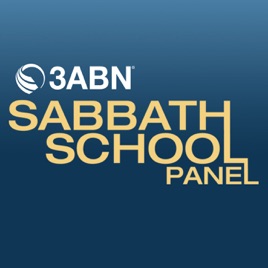
5
27
206
3ABN Sabbath School Panel
3ABN
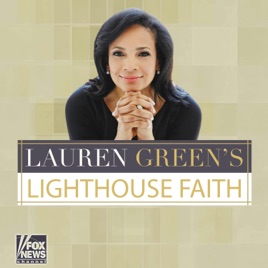
4.4
102
158
Lighthouse Faith
FOX News Radio

4.9
56
12
The Bible Through a Child's Eyes
Viced Rhino

5
19
101
Earth and Spirit Podcast
Earth and Spirit Center

4.5
177
91
HAIL SATAN - Modern Satanism for the Outsider
Joseph Rose
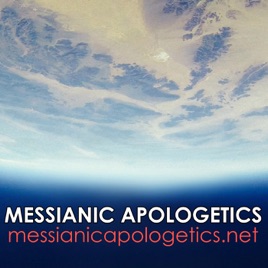
4.2
45
44
Messianic Apologetics
Messianic Apologetics

4
12
65
Yale Religion
Yale Divinity School

0
0
23
Oraciones Católicas
Maria Del Carmen González

5
43
159
Redemption Unveiled
Haley Carter
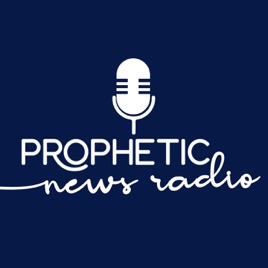
3.2
64
300
Prophetic News
Susan Puzio




